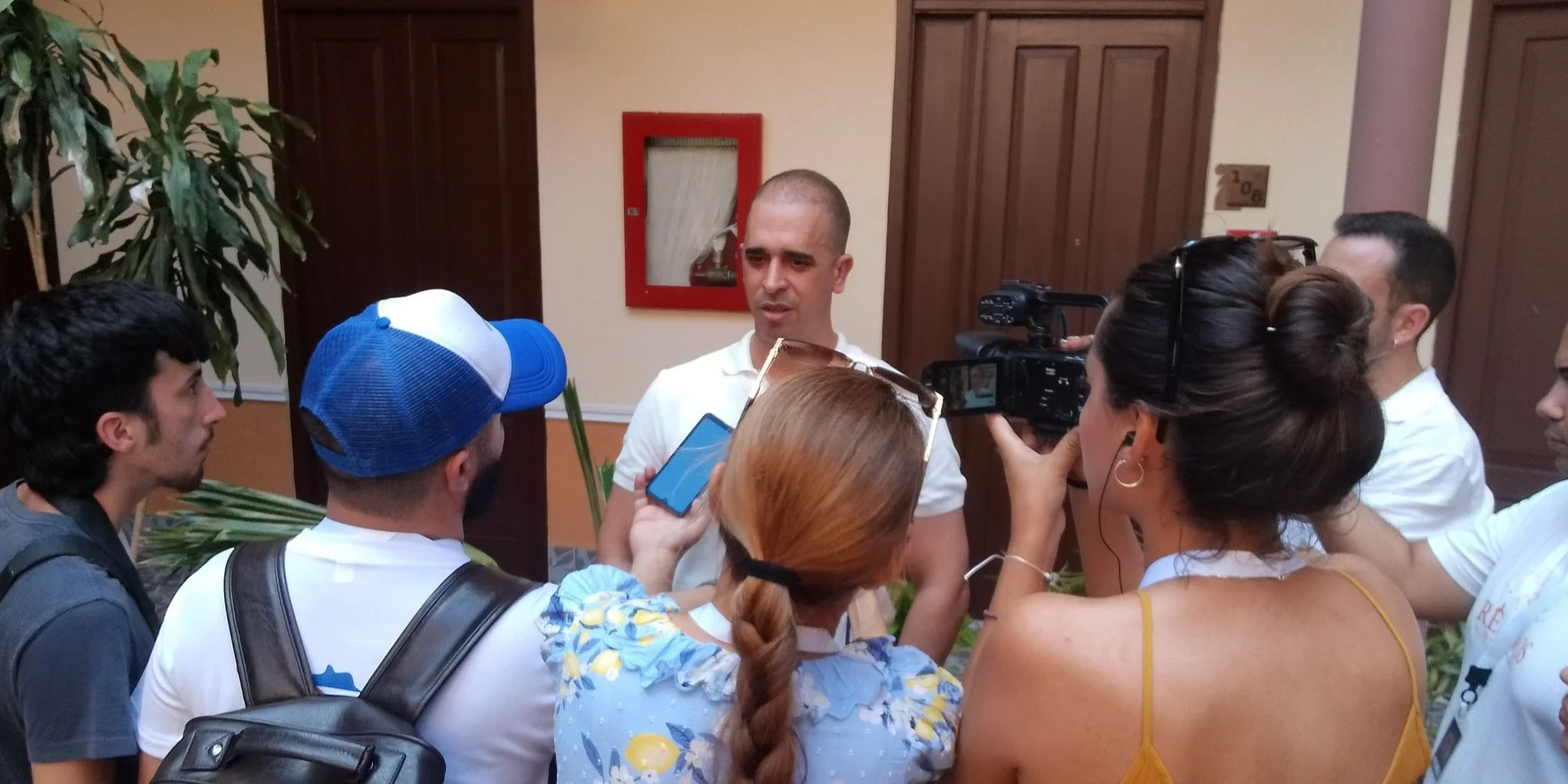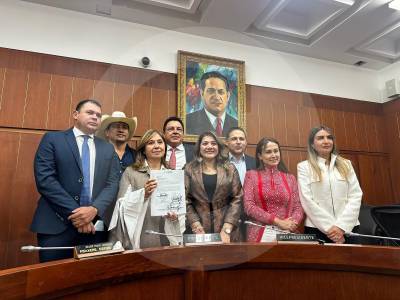
Alias Cristian, the State Security Repressor Expanding His Empire in Remedios
- Cuba
- junio 30, 2025
- No Comment
- 53
«Riverón is not a businessman. Riverón is a State Security officer, a repressor of students and professors,» recalled journalist José Raúl Gallego.
MIAMI, United States – Former State Security agent Yoandy Riverón González, known as “Cristian” during his time as a repressor at the “Marta Abreu” Central University of Las Villas (UCLV), continues to expand his presence in Cuba’s economic landscape with the backing of regime authorities. His case has once again sparked public denunciations from journalists and activists, who question the legitimacy of his transformation into a businessman.
On Wednesday, journalist José Raúl Gallego denounced on Facebook that Riverón “continues to expand his business façade” through the Local Development Project M&MAX, which recently launched a collection of perfumes, including one commemorating the 510th anniversary of the founding of the town of Remedios. This new venture adds to his soap factory in Caibarién and the mipyme MercaSurl, which is dedicated to reselling essential goods, some of them imported from the United States.
“Riverón is not a businessman. Riverón is a State Security officer, a repressor of students and faculty, and a mere snitch to whom the Cuban Communist Party (PCC, by its Spanish acronym) has granted licenses and benefits to conduct business,” Gallego wrote. He also pointed out that the alleged entrepreneur’s enrichment has been possible thanks to his position within the political police and an environment of “institutional corruption where competition is limited or crushed by the PCC, which favors him.”
“He is the kind of ‘trustworthy’ entrepreneur the PCC needs to sell to the world, to show to the European Union as a sign of an opening that is not real, while in fact they are strengthening the power of criminals and human rights violators loyal to the Castro leadership—people who, if necessary, will become the next Putin, Lukashenko, Nazarbayev, or Yakunin, ready to preserve the dictatorship that benefits them, but now with a market economy,” Gallego wrote.
Journalist Karla María Pérez, who was expelled from UCLV (Central Las Villas University) due to pressure from State Security, also reacted to Riverón’s new public profile and recalled his role as her repressor. “Yoandy Riverón, my repressor for months at UCLV, now with a very high profile among the façade of ‘new Cuban entrepreneurs.’ Forbidden to forget,” wrote the young woman while sharing Gallego’s post.
In June 2024, it came to light that Riverón had opened a soap factory under the format of a Local Development Project (PDL, by its Spanish acronym), with the capacity to produce 50,000 units per eight-hour shift. The plant, located in the former bicycle factory of Caibarién, is equipped with machinery imported from China and has 12 workers on the production line. The products include soaps, detergents, and oils, which are sold directly at the factory, with prices ranging from 45 to 135 Cuban pesos.
Although PDL M&MAX does not appear on the official list of mipymes approved by the regime, state media has promoted its products as a contribution to local development. Outlets like CMHW and pro-government journalists such as Lázaro Manuel Alonso have praised the quality and prices of the goods produced by the company.
Yoandy Riverón’s history as repressor is well documented. As a State Security officer assigned to the “Marta Abreu” Central University of Las Villas, he was involved in the harassment, interrogation, and expulsion of individuals such as Professor Dalila Rodríguez and students Víctor Dueñas and Javier Larrea, in addition to Karla María Pérez herself.
“There are people whose lives Riverón almost destroyed when he harassed, threatened, interrogated them, and caused them to be expelled from their university careers,” warned Gallego.
According to the journalist, Riverón’s case represents a recurring pattern in which former repressors, military personnel, or Communist Party officials are rewarded with privileged access to the emerging private sector. “Just as happened in some of the former Soviet republics, the Cuban regime has developed its own caste of ‘entrepreneurs’ who come directly from the party elite or military apparatus,” Gallego explained. “Individuals whose main trait is servile obedience and who, in most cases, wouldn’t be more than kiosk vendors if not for the privileges granted by the dictatorship they serve,” he added.
Riverón began his foray into the private sector as a “legal advisor” for the Jonas SURL footwear company in Camajuaní. He later founded his own mipyme, Merca-Max, registered as a marketer of agricultural products, but in practice focused on reselling cleaning supplies, food, and beverages—many of them of U.S. origin.
Despite his repeated statements against the embargo, Riverón himself has benefited from imports coming from the United States, which supply his businesses. Meanwhile, he has documented trips abroad with his family on social media.
“In some countries of the former Soviet Union, this emerging class turned oligarchs was decisive in blocking the path to true democracies once communism fell,” warned Gallego. “In Cuba, we’ve seen what happened in those countries, and the Riveróns and company should keep in mind that their violations have been documented—and that perhaps the fortunes they’re amassing thanks to their privileges could one day be used to compensate the victims of their misdeeds.”
Meanwhile, at UCLV, according to Gallego, “Riverón’s successors continue those same practices with the students who protested the ETECSA rate hike,” operating with complete impunity and with the expectation that they too will receive their “reward” in the form of a privileged mipyme once they fulfill their duties of political loyalty.
Texto para todos los trabajos
Recibe la información de CubaNet en tu celular a través de WhatsApp. Envíanos un mensaje con la palabra “CUBA” al teléfono +1 (786) 316-2072, también puedes suscribirte a nuestro boletín electrónico dando click aquí.
Sigue nuestro canal de WhatsApp. Recibe la información de CubaNet en tu celular a través de Telegram.




